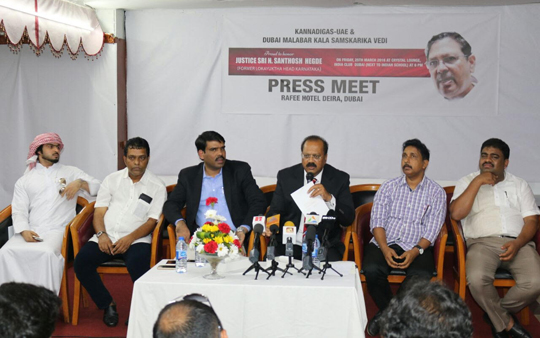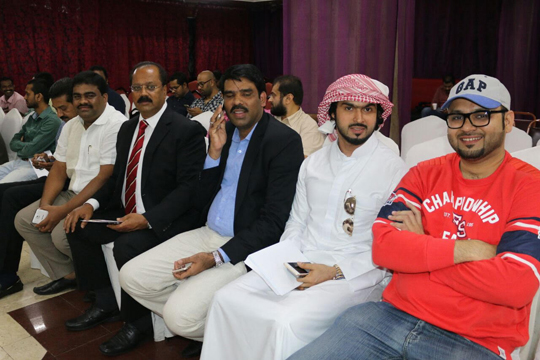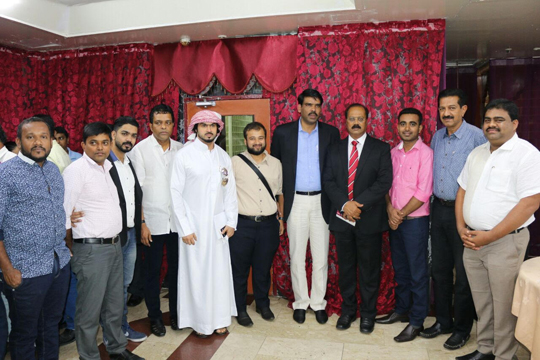Dubai, Mar 24: Former Karnataka Lokayukta and anti-corruption activist Santosh Hegde will be felicitated by Kannadigas UAE and Dubai Malabar Kala Samskarika Vedi in Dubai on Friday, March 25.

The event will take place at India Club near Indian School, here at 6 p.m., said Sorvotham Shetty, president of Kannadigas UAE and Abu Dhabi Kannada Sangha.
Karnataka State Minister for Forest, Ecology and Environment B Ramanath Rai, Karnataka State Minister for Health and Family Welfare U T Khader, Manjeshwar MLA Abdul Razzaq and UAE Exchange president Sudhir Shetty will be guests of honour.
NRI business tycoon Dr B R Shetty will preside over the function, he said at a press meet at Rafi Hotel, Dera Dubai, recently.
An interaction session will also be conducted on the occasion, wherein issues related to NRIs will be discussed with the former supreme court judge and elected representatives from Karnataka and Kerala.
M Friends General secretary Rasheed Vittal, Dubai Malabar Kala Samskarika Vedi members Yusuf Subbayyakatta, K M Abbas and Ashraf Karala were present at the press meet.







Comments
RSS (UAE EXCHANGE) and CONGRESS MEET IN DUBAI.????
IN BETWEEN MR. HEGDE WILL BECOME SANDWICH.
Add new comment